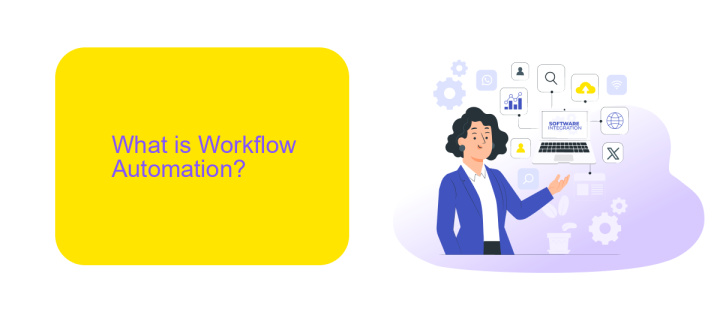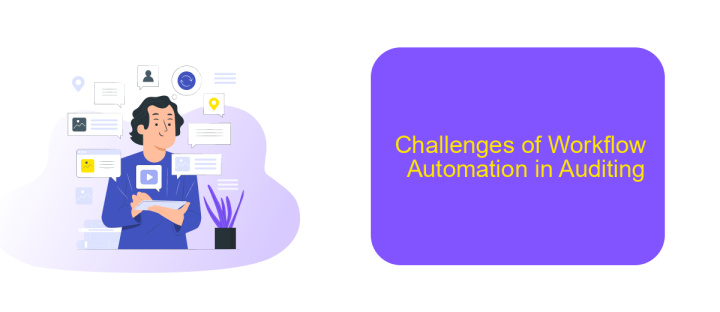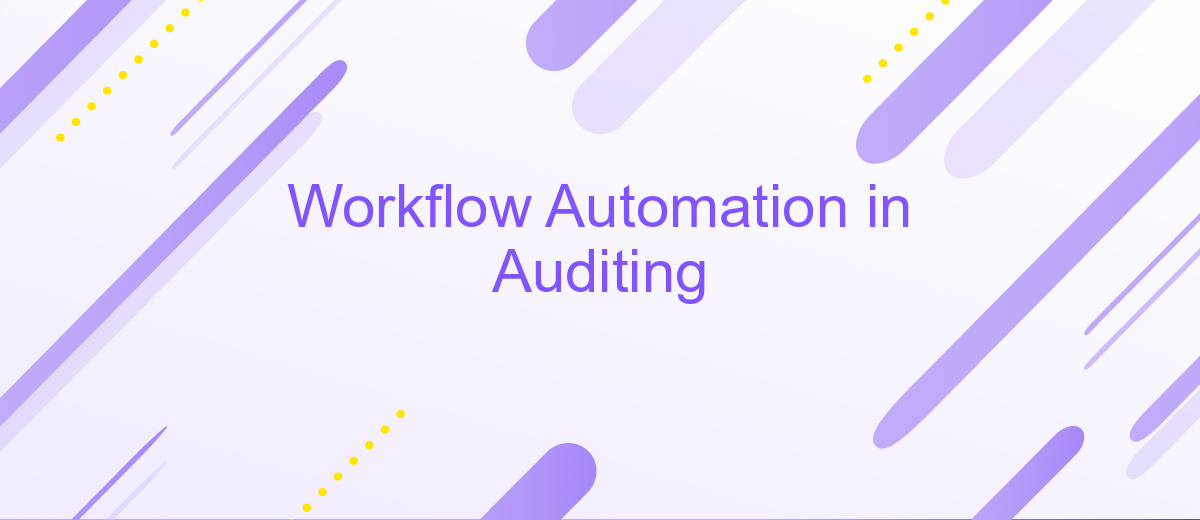Workflow Automation in Auditing
Workflow automation in auditing revolutionizes the traditional methods of financial examination by streamlining processes, enhancing accuracy, and reducing manual errors. By integrating advanced technologies such as AI and machine learning, auditors can now focus on more strategic tasks, improving overall efficiency and compliance. This article explores the benefits, challenges, and future prospects of adopting workflow automation in the auditing industry.
Introduction
Workflow automation in auditing has emerged as a critical tool for enhancing efficiency, accuracy, and compliance. By automating repetitive tasks, auditors can focus more on complex analytical work and less on manual data entry. This shift not only saves time but also reduces the likelihood of human errors, which can be costly and time-consuming to rectify.
- Improved accuracy and reduced errors
- Time-saving through automation of repetitive tasks
- Enhanced compliance and audit trail management
- Better resource allocation for complex tasks
One of the key enablers of workflow automation in auditing is the integration of various software tools and platforms. Services like ApiX-Drive facilitate seamless integration, allowing auditors to connect different data sources and systems effortlessly. By utilizing such integration services, auditing firms can streamline their processes, ensuring that data flows smoothly and accurately across different platforms, thereby enhancing overall productivity and reliability.
What is Workflow Automation?

Workflow automation refers to the use of technology to streamline and automate complex business processes, reducing the need for manual intervention. By implementing workflow automation, organizations can enhance efficiency, minimize errors, and ensure consistent outcomes. This technology can be applied to various tasks such as data entry, approvals, and notifications, enabling employees to focus on more strategic activities instead of repetitive, time-consuming tasks.
One of the key components of workflow automation is the integration of different systems and applications to work seamlessly together. Services like ApiX-Drive facilitate this by allowing users to connect multiple platforms without the need for coding. With ApiX-Drive, businesses can automate data transfers between CRM, email marketing tools, and other software, ensuring that information flows smoothly across the organization. This not only saves time but also ensures that data is accurate and up-to-date, which is crucial for effective decision-making and auditing processes.
Benefits of Workflow Automation in Auditing

Workflow automation in auditing offers numerous advantages that significantly enhance efficiency and accuracy. By streamlining repetitive tasks and reducing human error, auditors can focus on more complex and value-added activities.
- Increased Efficiency: Automation tools can handle routine tasks such as data entry, allowing auditors to save time and work more efficiently.
- Improved Accuracy: Automated systems reduce the risk of human error, ensuring that data is processed accurately and consistently.
- Better Compliance: Automated workflows ensure that all auditing processes adhere to regulatory standards, reducing the risk of non-compliance.
- Enhanced Data Analysis: Automation tools can quickly analyze large volumes of data, providing auditors with deeper insights and more informed decision-making.
- Seamless Integration: Services like ApiX-Drive facilitate the integration of various auditing tools, creating a cohesive and efficient workflow.
By leveraging workflow automation, auditing firms can not only improve their operational efficiency but also deliver higher quality audits. The use of advanced tools and services such as ApiX-Drive enables seamless integration, further enhancing the overall auditing process.
Challenges of Workflow Automation in Auditing

Implementing workflow automation in auditing presents several challenges that organizations must navigate to achieve optimal efficiency. One of the primary obstacles is the integration of various software systems and tools. Ensuring seamless communication between different platforms can be complex and time-consuming.
Another significant challenge is the customization of automation workflows to meet specific organizational needs. Standard automation solutions may not fit all auditing processes, requiring extensive adjustments and fine-tuning.
- Integration difficulties with existing systems
- Customization of workflows
- Data security and compliance concerns
- Employee resistance to change
To address these challenges, services like ApiX-Drive can be instrumental. ApiX-Drive facilitates the integration of various applications, streamlining data flow and reducing manual intervention. By leveraging such tools, organizations can overcome integration hurdles and focus on enhancing their auditing processes. However, it remains crucial to ensure that all automated workflows adhere to data security standards and regulatory requirements.
Best Practices for Implementing Workflow Automation in Auditing
Implementing workflow automation in auditing requires a strategic approach to ensure efficiency and accuracy. Start by identifying repetitive and time-consuming tasks that can be automated, such as data entry, report generation, and compliance checks. Choose reliable automation tools that integrate seamlessly with your existing systems. ApiX-Drive, for instance, offers robust integration capabilities, allowing you to connect various applications without extensive coding knowledge. This ensures that data flows smoothly between platforms, reducing manual intervention and the risk of errors.
Next, involve your auditing team in the planning and implementation stages to gain their insights and foster buy-in. Provide comprehensive training to ensure everyone is comfortable using the new tools. Regularly review and update your automated workflows to adapt to changing regulations and business needs. Additionally, establish clear metrics to measure the effectiveness of automation, such as time saved and error reduction. By following these best practices, you can enhance the efficiency and reliability of your auditing processes.
FAQ
What is workflow automation in auditing?
What are the benefits of implementing workflow automation in auditing?
How can I integrate workflow automation into my current auditing process?
Is workflow automation in auditing secure?
Can small auditing firms benefit from workflow automation?
Strive to take your business to the next level, achieve your goals faster and more efficiently? Apix-Drive is your reliable assistant for these tasks. An online service and application connector will help you automate key business processes and get rid of the routine. You and your employees will free up time for important core tasks. Try Apix-Drive features for free to see the effectiveness of the online connector for yourself.

